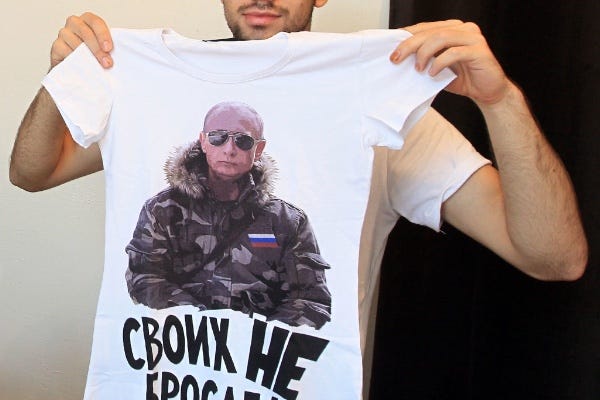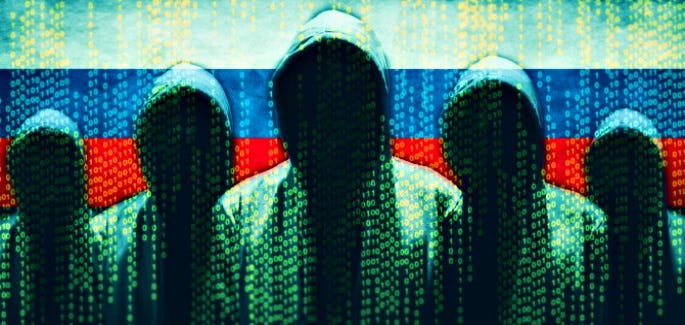Ya down with PPP?

Markets
USD to RUB: 63.2472 (.33%)
BRENT CRUDE: 76.94 (.83%)
IMOEX: 2255.07 (1.08%)
RTS: 1122.00 (.84%)
Top Story
Government looks to attract PPPs
NEWS: In the next two weeks, the Ministry of Economic Development (MinEkonomiki) will submit draft amendments to Russia’s laws on public-private partnerships (PPPs) and concessions. In doing so, the ministry hopes to reduce risks for investors—namely those created by the state—and attract private capital for large-scale infrastructure projects.
TAKEAWAY: In his May decrees, Putin promised to increase infrastructure spending by 11 trillion rubles ($173.6 billion). Finance minister Anton Siluanov estimates Moscow needs to attract 2-3 rubles in private investment for every ruble it spends. The proposal will protect investors, likely slow down future regulatory changes, and grant concessionaires greater rights. But really, it's about MinEkonomiki marking its territory so MinFin doesn't steal more of its powers.
DETAILS: The ministry’s primary objective in the amendments is to draw a clear boundary between state procurement and concessions, noting that the current grey area is a key risk for private investors. This became an issue last year after the Federal Anti-Monopoly Service (FAS) opened a case against a road project in Bashkortostan, arguing that concessions receiving full compensation from the budget are illegal and fall under the guidelines of state procurement. While FAS lost the court case, there is no guarantee that similar lawsuits will not derail infrastructure projects without legal clarity.
The ministry proposes to differentiate between the capital grant and the concession grantor’s fee. The Bashkortostan case revolved around the fact that concessionaires could win capital grants to cover most or all costs and then avoid repayment. This delineation legally cloisters capital grants from procurements -- MinFin's domain -- while ostensibly avoiding the problem by mandating a longer repayment schedule so the concessionaire doesn't simply take the contract revenues generated by a capital grant and run.
The second major amendment will guarantee investors the right to determine conditions for the compensation of losses in the initial contract. This measure will be a hit among investors, who are highly vulnerable to regulatory changes. Analysts at InfraOne estimate, for instance, that investors may lose up to 15 billion rubles ($237 million) from the government’s decision to reduce VAT subsidies. With the new amendments, investments can be protected, hopefully reducing the sector's growing reliance on state money to build everything.
Diplomatic Agenda
June 26: Deputy Foreign Minister Alexander Grushko met with OSCE Secretary General Thomas Greminger in Vienna. The Ministry of Foreign Affairs' bulletin for yesterday is linked here.
July 2: A delegation from Hamas is expected to visit Moscow on Monday following up on US NatSec Advisor John Bolton's visit today.
July 9-12: The Innoprom exhibition showcasing innovation in Russian industry will be held in Ekaterinburg. Japan, Germany, Slovakia, Italy, Switzerland, and South Korea all have national expositions, cultural programs, or delegations coming.
Mid-July: Russia-Ukraine gas talks are reportedly set for mid-July, per energy minister Alexander Novak.
Chart: GDP, Econ stat revision adds investor uncertainty [ENG]

Defense Corner with Nick McCarty (@nickmccart5)
Aleksey Krivoruchko, the 42 year old (now former) CEO of Russian defense giant Kalashnikov Kontsern, officially assumed his new position last week as Deputy Defense Minister in charge of Armaments, overseeing the implementation of state defense orders. Krivoruchko’s move, first reported by Kommersant in May, marks the first time that the crucial post has been held by a civilian in Russian history and is a far cry from previous engineering school educated military men such as the outgoing minister Yuri Borisov (who himself is destined for the Deputy Prime Minister for Defense Industries position).
Great things are expected of the young Krivoruchko. Despite landing on the U.S. SDN list in April 2013 under the Magnitsky Act, Krivoruchko was crucial in leading Kalashnikov toward privatization as he took both a 25% share of the company and the directorship. Since taking over as CEO, Krivoruchko has increased revenues by broadening the company’s customer base with an eye towards consumer and sport manufacturing. It is likely that Krivoruchko will seek to use the same approach he took with Kalashnikov towards the entirety of the Russian defense industry. Privatization will continue apace, with Rostec, Russia’s state holding company, holding enough of a minority ownership stake to block initiatives it deems counter to the national interest.
Krivoruchko will face a much stiffer task managing the state’s defense contracts, which are facing a number of embarrassing delays (especially among naval construction). The Ministry of Defense, dominated by the uniformed services, has traditionally been hostile to outsider civilians. Former Defense Minister Anatoly Serdyukov, the last civilian (Shoigu’s medal laden uniform being the other exception) to serve in a senior defense post, was dismissed on corruption charges after his reform attempts were stonewalled by a rebellious General Staff. Krivoruchko’s acceptance does represent a risk, but his prior success and the urgent need for continuing modernization among Russia’s ground and air forces means that he will likely have the latitude needed to do the job effectively.

Snapshot: Taxes = legal status for self-employed [RUS]
In order to strengthen the legal status of self-employed people, thet state is trying out taxing 3-6% of self-employed people's incomes in Moscow, Tatarstan, and the Moscow and Kaluga regions. The move is a test to bring revenues out of the shadow economy. (Photo: Yevgeniy Razumny / Vedomosti)
What They're Saying
"Unfortunately, we sometimes see the exact opposite situation (from other member countries): the unilateral imposition of restrictive or prohibitive duties and other protectionist measures without any legal grounds."
- Dmitry Medvedev, on the WTO and counter-sanctions
The Grapevine with Anna Nadibaidze (@AnnaRNad)
This week in Telegram channels:
There are ongoing debates about the usefulness of elections in the Kremlin, reports @russica2. Research shows that demand for elections, especially in the regions, is low. Legitimacy for regional governors seems to come from the mandate received from the President, therefore cancelling elections is just a matter of time.
@kremlebezBashennik reports about a joint closed meeting between the Presidential Administration staff, as well as the teams of Deputy PMs Konstantin Chuychenko, Tatyana Golikova and Olga Golodets, to discuss pension reforms. There are plans to increase salaries of public sector workers in order to appease the population’s discontent with the reforms.
All Presidential Envoys to federal districts who have kept their posts should not expect to keep them for too long, thinks @obrazbuduschego, adding that more changes are due in the fall. As other channels expect ex-Agriculture Minister Alexandr Tkachov to become ambassador to Belarus, @obrazbuduschego’s sources say Tkachov remains one of the candidates for the post of Plenipotentiary to the Southern Federal District.
According to rumors heard by @plostar, the Russian football team and its staff received $8 million for winning against Saudi Arabia, and $12 million for passing to the next stage. If the team manages to go to quarter ifinals, it will receive $15 million. However, according to @treli_solovya, the bonus amount will depend only on the team’s overall result, not game by game.
Putin’s pension reform dilemma, according to @seryikardinal: the president cannot support the reform (especially with falling approval rates), but to soften it would mean to recognize it was wrong. The only way for Putin to come out as a winner would be to preserve the current system, while indexing pensions by 20-25% at once.
Chart: % of Men collecting pensions will decline [RUS]
Title = Men (Far left for year of birth, far right for adjusted retirement age)
Left column = odds of making it to 60 years old
Right column = odds of making it to retirement age


Snapshot: Russia preparing cyberattack on Ukraine [ENG]
The Ukrainian government has gone public with concerns that Russian hackers are planting malware in a wide range of locations preparing for a large, coordinated cyberattack. The country's infrastructure and energy sector lie are reportedly being targeted. (Photo: HackRead)
Pension reform
Unions want to negotiate with the Duma on pension reform
NEWS: The Federation of Independent Trade Unions of Russia announced yesterday that they want an increase in the pension age to be part of a “package” of labor market reforms. They also want to Duma to consider raising wages and reinforcing the social safety net, for example.
TAKEAWAY: The unions don’t want to cause problems, but they have to answer to their members as well as their political bosses. If workers feel they are not being compensated for the higher pension age, they may cause trouble.
WHY: FITUR is, according to Kommersant’s sources, an entrenched part of the All-Russian People's Front, a coalition led by United Russia. It is part of the regime's apparatus for maintaining social order. Its rival, the Confederation of Labor in Russia, is less tethered to the regime and is currently organizing protests throughout the country. FITUR is leaving the decision to protest to regional leaders. The national organization hopes to release local radicals but dodge responsibility for disturbing the peace. Meanwhile, it is working through political channels to win concessions for its members.
The leader of FITUR says he wants an increase in the pension age to be accompanied by a “new social contract” — one negotiated by his organization. In other words, he wants workers to be compensated for the lost pension income through other programs. The money to pay for the May Decrees must eventually come from somewhere, however, and Putin seems willing to withstand some political heat in order to enact pension reform.
OPINION / ANALYSIS / ODDS AND ENDS
From Novaya Gazeta: Elena Malashina takes a deep look at the appointment of Abubakar Egelderiev to the post of presidential advisor on Putin's staff and how the former representative of the Chechen Republic, lacking influence in Chechnya proper, has avoided scandal and stayed close to power. [RUS]
From bne intellinews: Ben Aris writes that Russia's stocks are the cheapest in emerging markets if you're looking for a deal. [ENG]
From Kommersant: the Russian Supreme Court refuses to acknowledge Syrian migrants as refugees because, in its estimation, the conflict in Syria is not a military conflict from which they're fleeing. They're applications for asylum have been rejected because Syria is a counter-terrorism operation. They clearly have a Philadelphia lawyer parsing that distinction. [RUS]
In a piece for Vedomosti, political scientist Vladimir Gelman argues that pension reforms won't lead to mass action protests thanks to the growing repressive politics of fear and the diffusion of protest momentum by various mechanisms. [RUS]
With all the debate about Russia’s supposed decline, scholars Simon Saradzhyan and Nabi Abdullaev claim to have found a way to measure ‘national power.’ Their results? Claims of Russia’s imminent demise seem unfounded. [ENG]
Things are looking dicey for Russia’s oldest liberal democratic party. Meduza reports that Yabloko is currently suing itself over disagreements regarding the Moscow mayoral election. [ENG]
Founded in 1955, the Foreign Policy Research Institute i

s dedicated to bringing the insights of scholarship to bear on the foreign policy and national security challenges facing the United States. It seeks to educate the public, teach teachers, train students, and offer ideas to advance U.S. national interests based on a nonpartisan, geopolitical perspective that illuminates contemporary international affairs through the lens of history, geography, and culture.
To keep up with FPRI daily, be sure to follow us on Twitter @FPRI and Like us on Facebook — joining our more than 250,000 fans worldwide!
For more information, contact Eli Gilman at 215-732-3774, ext. 103, email fpri@fpri.org, or visit us at www.fpri.org.




